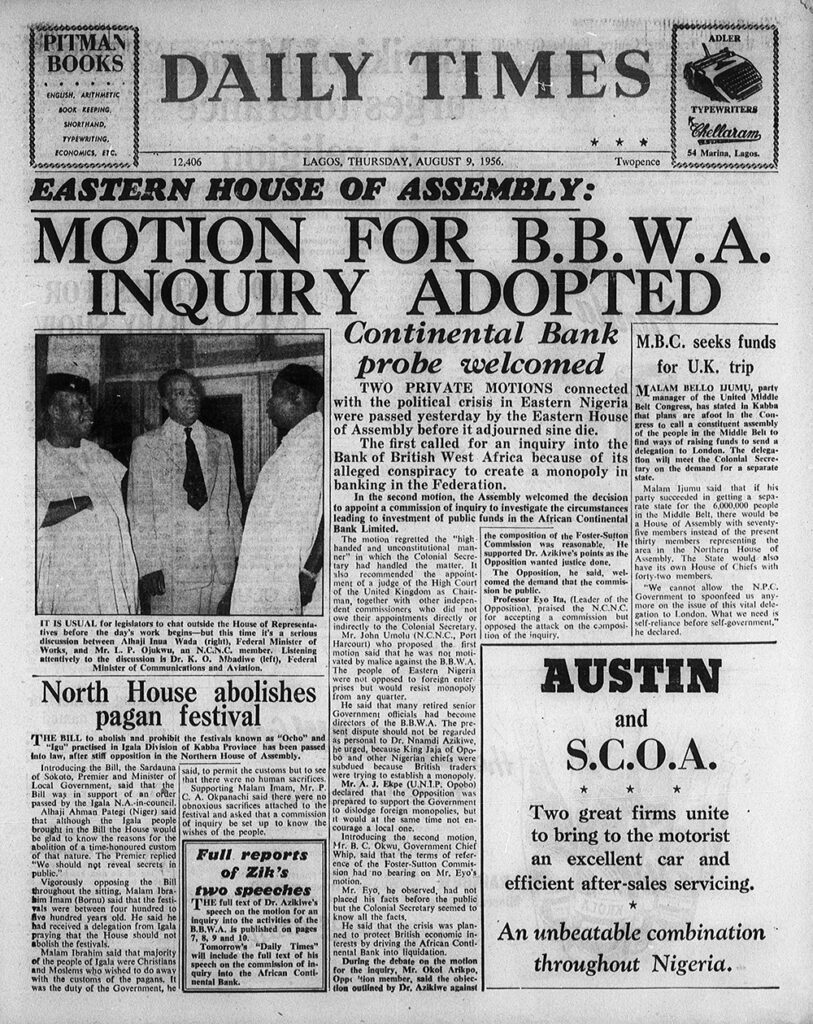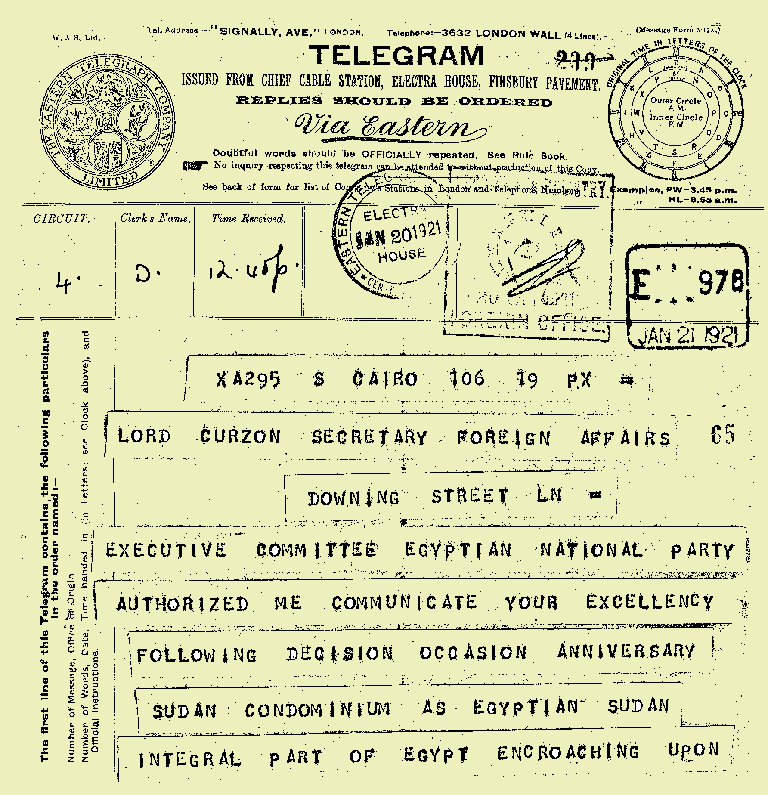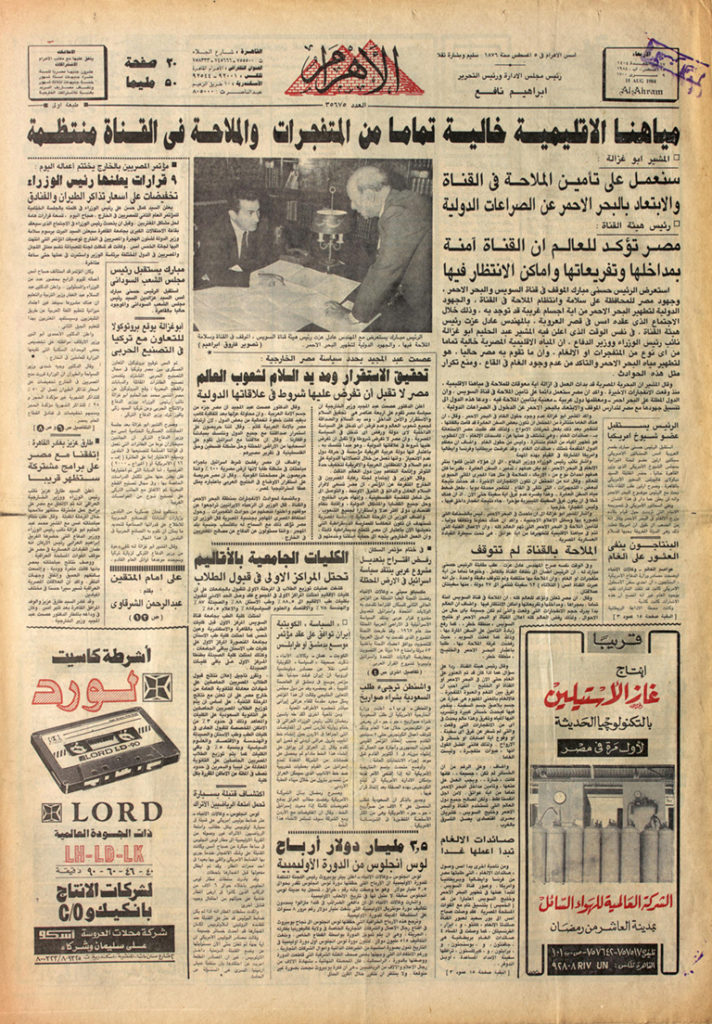African Newspaper Archives
Nigerian Daily Times , 1925–2001
— Documenting the Modernization Journey of Africa’s Leading Nation

Nigeria is Africa’s most populous nation and a leading power in the region in terms of economy and politics—an emerging global force drawing international attention. Since its founding in 1925, *The Daily Times* has documented the country’s most pivotal historical moments—from the discovery of oil in 1956, independence in 1960, and the civil war of 1967–1970, to the democratic transition in 1999 and the ongoing social challenges of today—serving as a first-hand chronicle of Nigeria’s path to modernization.
This is the only digital archive to offer a complete preservation of The Daily Times in its original layout, featuring full-page scans, image restoration, and full-text search capabilities. It is an invaluable resource for scholars in African studies, history, politics, and gender studies. As part of East View’s Global Press Archive (GPA) initiative—curated and preserved in collaboration with Stanford University Libraries and the Hoover Institution—this database is dedicated to safeguarding original news sources from around the world while expanding digital access for the global academic community.
Egypt and the Rise of Nationalism: 1840–1927
The archive comprises an assembly of materials, otherwise scattered across a variety of record classes and files, whose documents capture and reflect an era spanning from the first appearance of a nationalist sensibility to its gradual entrenchment in public life through protests, journalistic agitprop, lobbying activities, sporadic violence, and then – almost as a denouement – through an ordered political process, in the context and perspective of Britain’s evolving policy regarding Egypt. The nature and length of the British presence in Egypt, in terms of the military occupation and all that entails and implies, inevitably reflects the ebb and flow of nationalist thinking and activities in its records of events during the forty years covered herein.
The collection depicts the ultimate consensus in British government policy as a response to movements and events in Egypt. Due to the official nature of the documents included, there is an inevitable bias against Egyptian nationalist sentiments for its inherent negative implications to British interests. However, some officials and politicians were more sympathetic and supportive than others, depending on the overall policy of the home government – whether a Liberal or Conservative regime, demonstrating Lord Salisbury’s truism that domestic politics were inextricably linked with foreign policy.

Thus, Britain’s actions towards Egypt during the period in question were never magnanimous, but pragmatic with regards to her policies and interests, including the safeguarding of the Suez Canal and thereby the route to India. Inevitably, both sincere and ardent nationalist beliefs and antiBritish sentiment and agitation had to be evaluated by British officials and politicians of the time in the specific context of these broader policy considerations, including regional and international relations, not on their intrinsic merit as a socio-political progression.
The documents included in the archive almost all derive from government records held in The National Archives UK, and range in scope from records of casual conversations, formal meetings, correspondence with individuals and groups, monitoring of the nationalist press, internal British evaluations and debates on objectives and status of the leaders and individual campaigners, and forceful responses to insurgencies involving nationalist activists. This collection focuses on developments connected to figures prominent in nationalist activities and pays special attention to interactions between them and British authorities, typically at flashpoints. As such, some years in which no specific events occurred may be omitted, while documents relating to particularly eventful years figure more prominently in the record. Each document in this collection is richly tagged, full-text searchable, and dynamically discoverable. Users can browse by people, places, and topics (as identified by the collection’s editors), as well as document types (e.g., despatch, map, telegram, letter, etc.). Each object is also georeferenced in a map view, both by geographic origin of the document and by locations associated with items in the collection.
Al-Ahram

Founded in 1875, Al-Ahram (الأهرام, “The Pyramids”) is one of the most prominent Arabic newspapers in the Middle East, including its legacy as Egypt’s most authoritative and influential national daily. It is one of the most important newspapers in the Arab world with a circulation of over 1 million, having established itself as a high-quality journalistic venture during the mid-20th century.
Regarded as “the register of contemporary life” in Egypt by Taha Hussein—the acclaimed “Dean of Arabic Literature”—the Al-Ahram daily newspaper reaches across the political, social, economic and cultural scope of the nation in its reporting. After President Nasser nationalized the Egyptian press in 1960, Al-Ahram readers generally considered the paper the de facto voice of the central government.
Al-Ahram has long featured contributions from many of the Arab world’s most important literary figures and intellectuals: Naguib Mahfouz, Edward Said, Yusuf Idris, Taha Hussein, Ahmed Lutfi el-Sayed, and Azmi Bishara among them, as well as nationalist leaders such as Mustafa Kamil and Saad Zaghlul. Influential forward-leaning contemporary writers such as Sabah Hamamou are also affiliated with the paper.
The Archive contains all obtainable published issues from 1876 on, with an additional year’s worth of content added on an annual basis. It offers scholars the most comprehensive collection available for this title, and features full page-level digitization, complete original graphics, and searchable text.
Information
Features
The newspaper over its history successfully expanded to circulate newswire content from sources from around the world, and Al-Ahram prints international editions published in Europe and the United States. Arabic-language editions of the daily are published in Bahrain, Saudi Arabia, Kuwait and the U.A.E. Its publishing house of the same name is the largest publisher in Egypt with content produced in the Arabic, English, and French languages.

